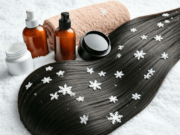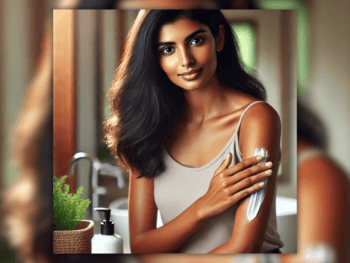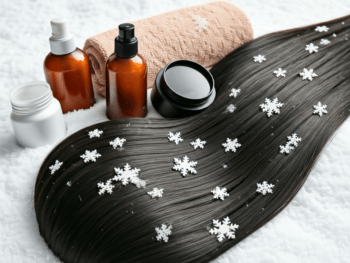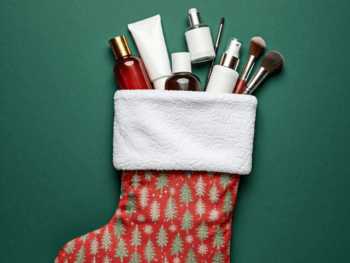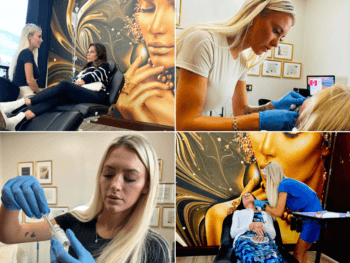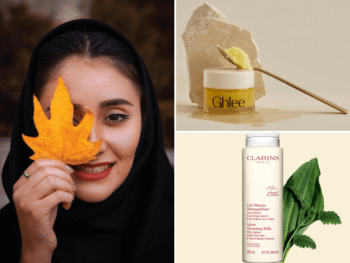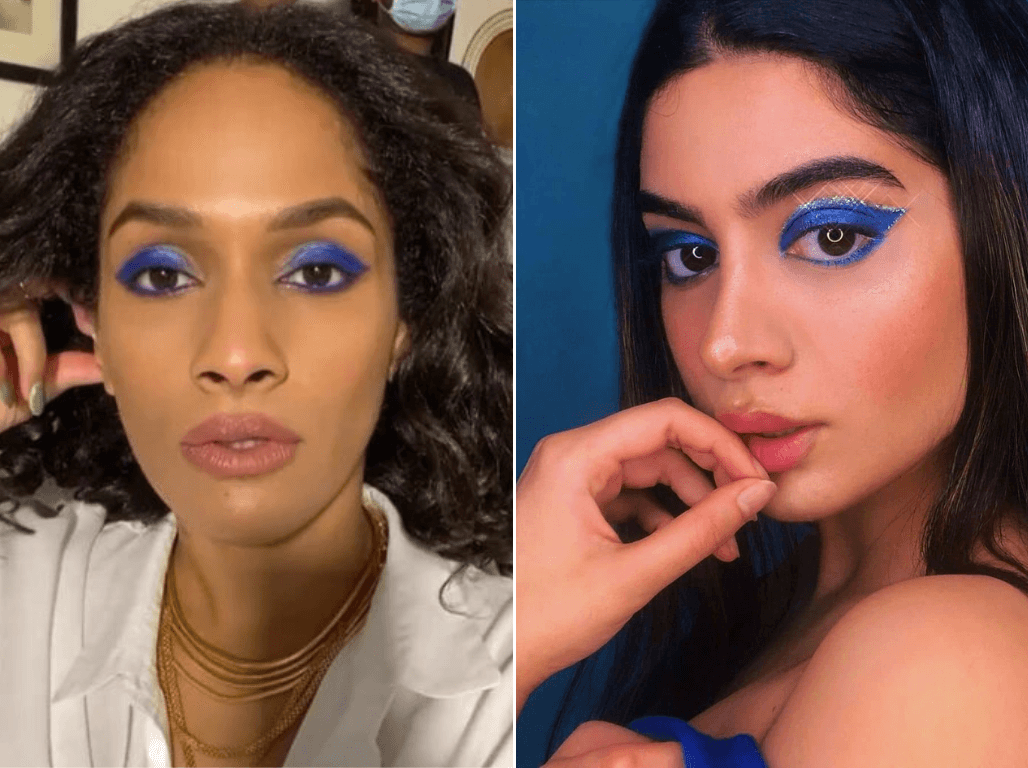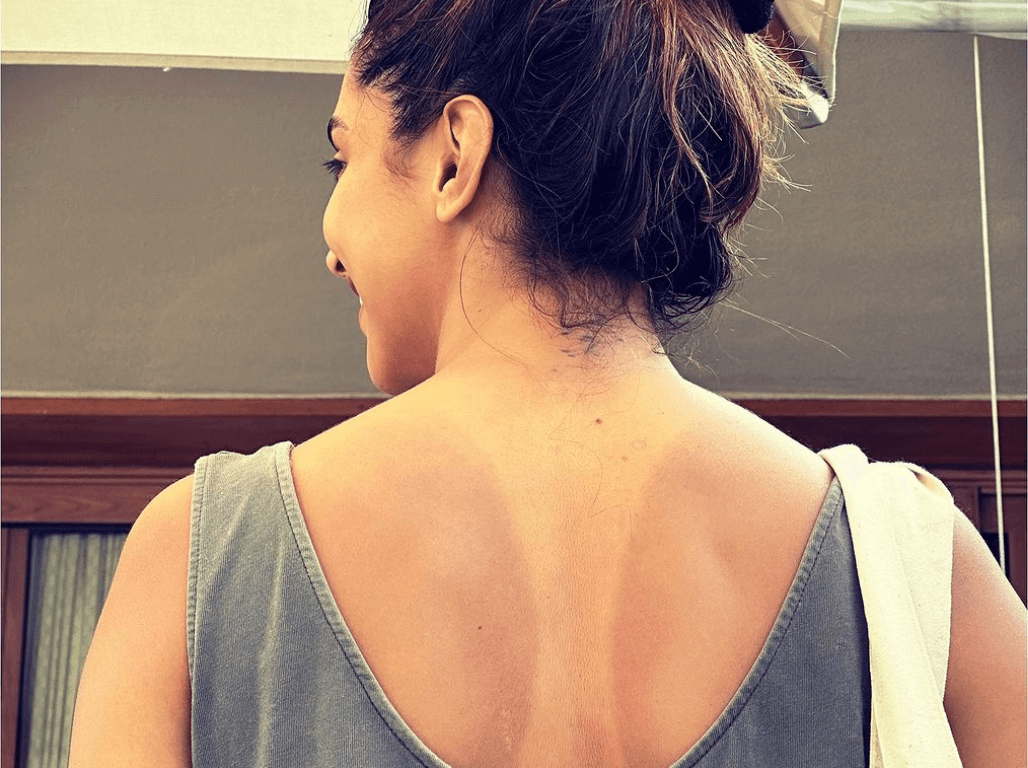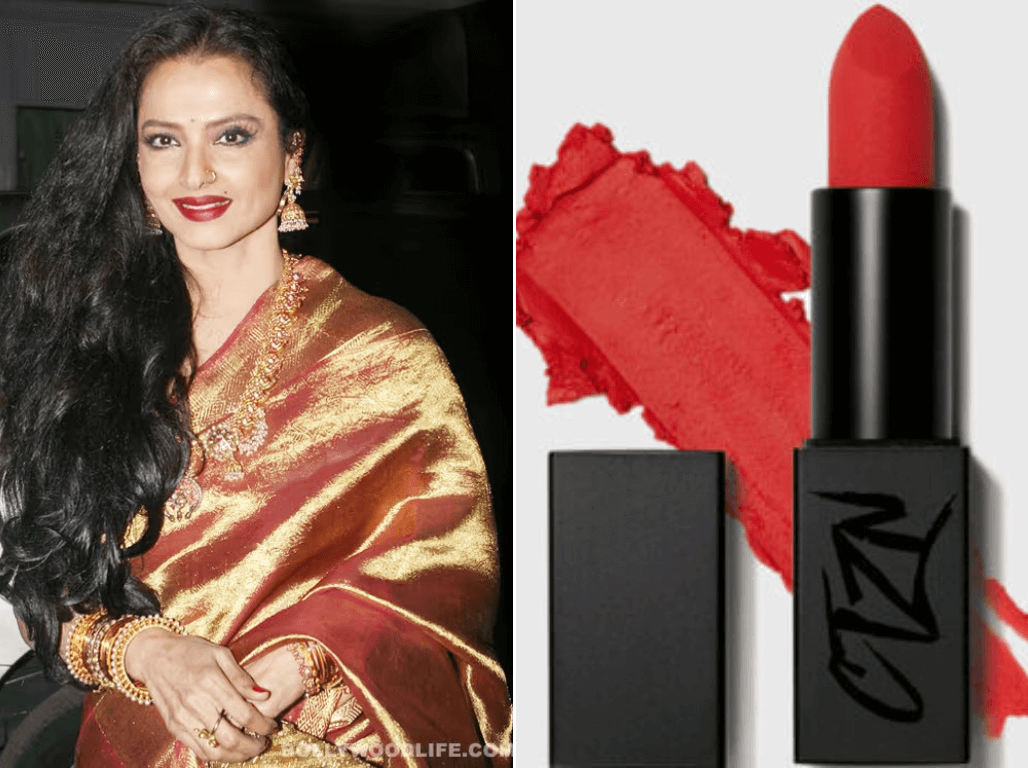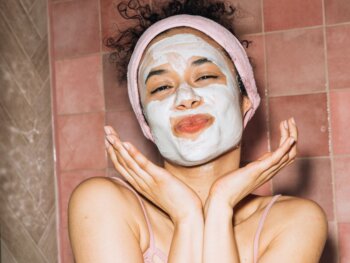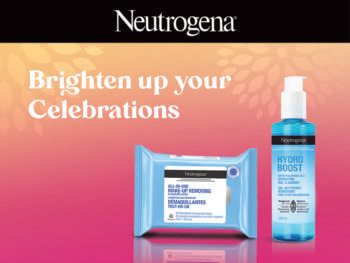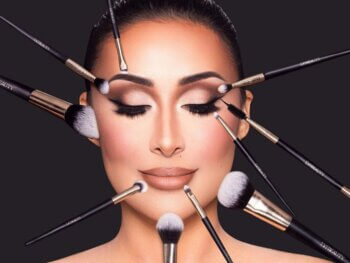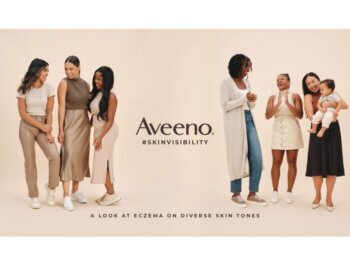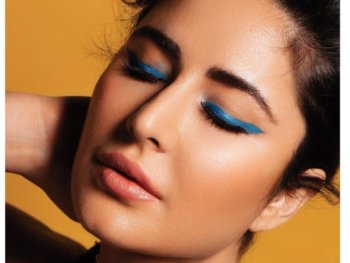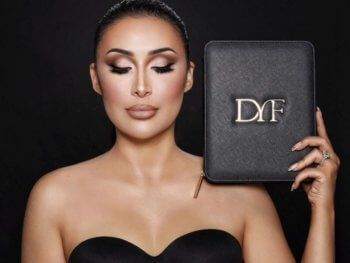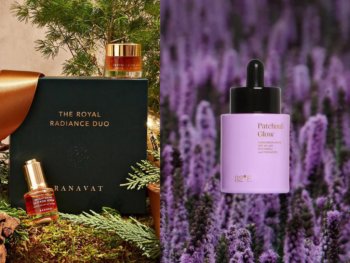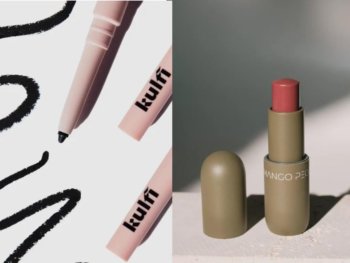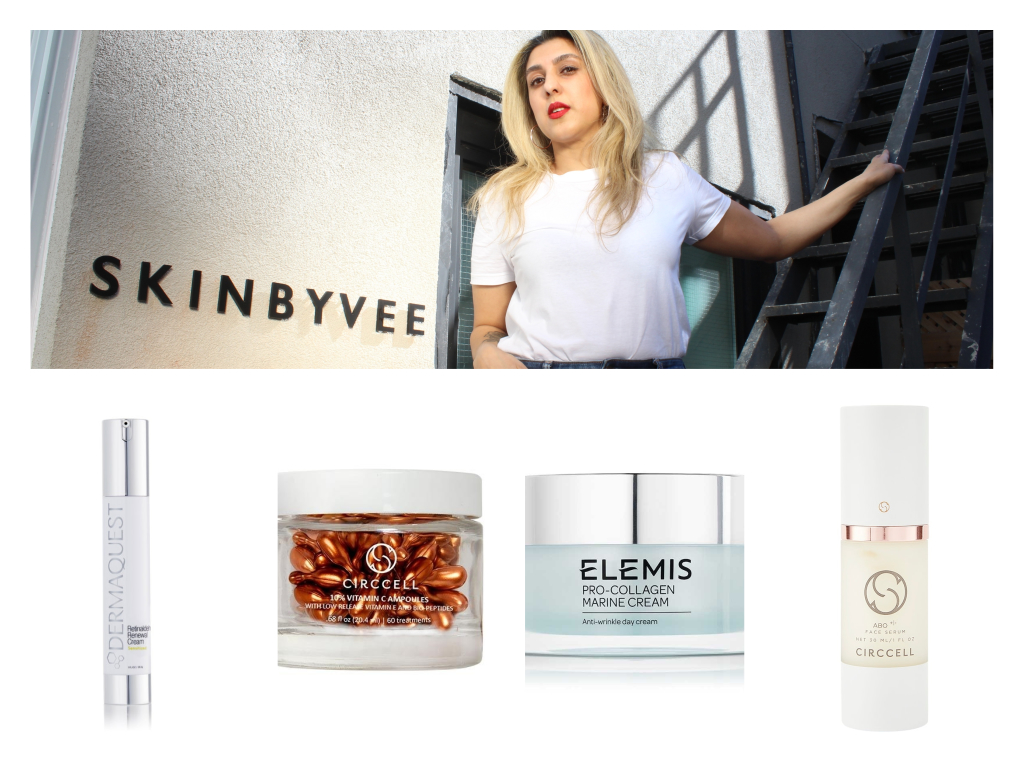
Stop Putting Food On Your Face And Other Beauty Tips From Skincare Expert Vee Mistry
Beauty Feb 15, 2021
We asked skin expert Vee Mistry of SKIN BY VEE to give us the lowdown on all things skincare. She’s busted some myths and gave us some great insights on what to start with, and what to work towards when it comes to great looking skin.
There’s a reason why skin specialist Vee Mistry has a VVIP clientele. It’s her in-depth knowledge of skincare and that’s why she’s the perfect person to help give us a primer on key ways to take care of our skin. From ways to top off your skin’s hydration during the winter months, to the key essentials that you and more, Vee Mistry of SKIN BY VEE breaks it all down for us.

Hina P. Ansari: Tell me the basic essentials that one should have as part of their skincare regime.
Vee Mistry: Your basic essentials should include three things: cleanser, moisturizer and SPF. Clean the skin really well. Moisturize it because it will hydrate the skin and the SPF will protect it against UV A & B rays, blue light (from your phone/tablet and computer screen) and free radicals.
HPA: Let’s start with the cleanser, what should one look for when buying one?
VM: When shopping for a cleanser, try not to look for anything that’s overtly exfoliating or too stripping. If that minute between cleansing and moisturizing, your skin feels like its going to crack and fall off, that’s a bad sign. That cleanser is not balancing your pH levels and is creating irritation, Rosacea and sensitivity and some cases it can lead to breakouts.
HPA: Is it true that you should wash your face with warm water and then rinse off with cold water?
VM: Always use cold water from beginning to end.
The heat is creating so much inflammation on the skin. The inflammation equals trauma. We don’t want to traumatize the skin. Don’t put heat on your skin. Your pores are your pores. Some people’s pores are more prominent while some are tighter.
Pores don’t open and close. It’s not a flower.
We can work on making sure our pores are not as visible by keeping them nice and clean. That’s done through exfoliation, toners, cleansers, and masks. Cold water will keep your skin nice and calm. You will notice density and glow to your skin that you wouldn’t notice if you use hot water.
HPA: Yes or no to makeup cleansing wipes?
VM: NO! You can you put that in caps and bold it. Wipes are not cleansers. They basically move the makeup around. It’s not cleaning the skin. They are packed with so much alcohol that it will strip the skin. And when people use it, they are scrubbing it like they are scrubbing their pots and pans.
HPA: What’s the right moisturizer?
VM: Your moisturizer’s job is to hydrate from the top level in the skin. It’s hard for people to navigate through the ingredients list, so what I would say is try not to look for anything too heavy in the summer for instance, look for a gel or a lighter cream. In the winter, you want something more comforting. Use a moisturizer that’s medium to a heavier weight. Don’t be nervous even if you do have acne or breakouts, because your skin still needs hydration. The only time you would break out more is when you are using the wrong moisturizer.
HPA: How do I know that I have the wrong moisturizer?
VM: If your skin has never been prone to breakouts before, and you buy this new moisturizer and suddenly you are breaking out, that means you have the wrong moisturizer. Don’t assume that you are purging. Your skin is staying “stop it”. It’s the wrong product.
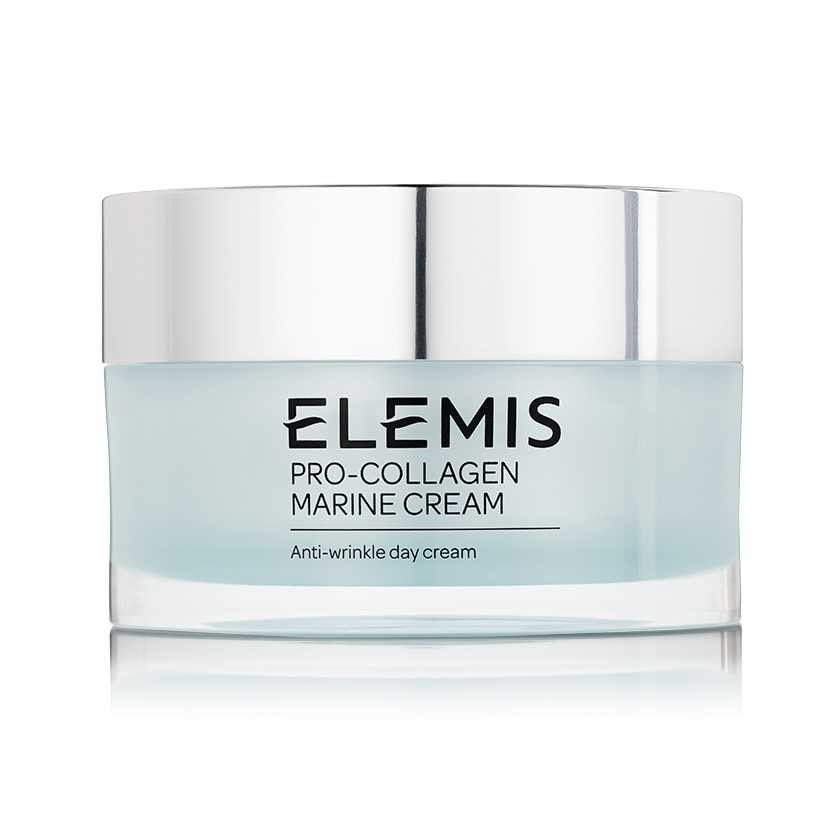
HPA: What if I just ran out of my day cream. Can I just use my night cream during the day instead?
VM: I get asked a lot why one needs a day cream and a night cream. Keep in mind your night cream has photo sensitive ingredients. Also night creams are thicker so it may not work well under makeup.
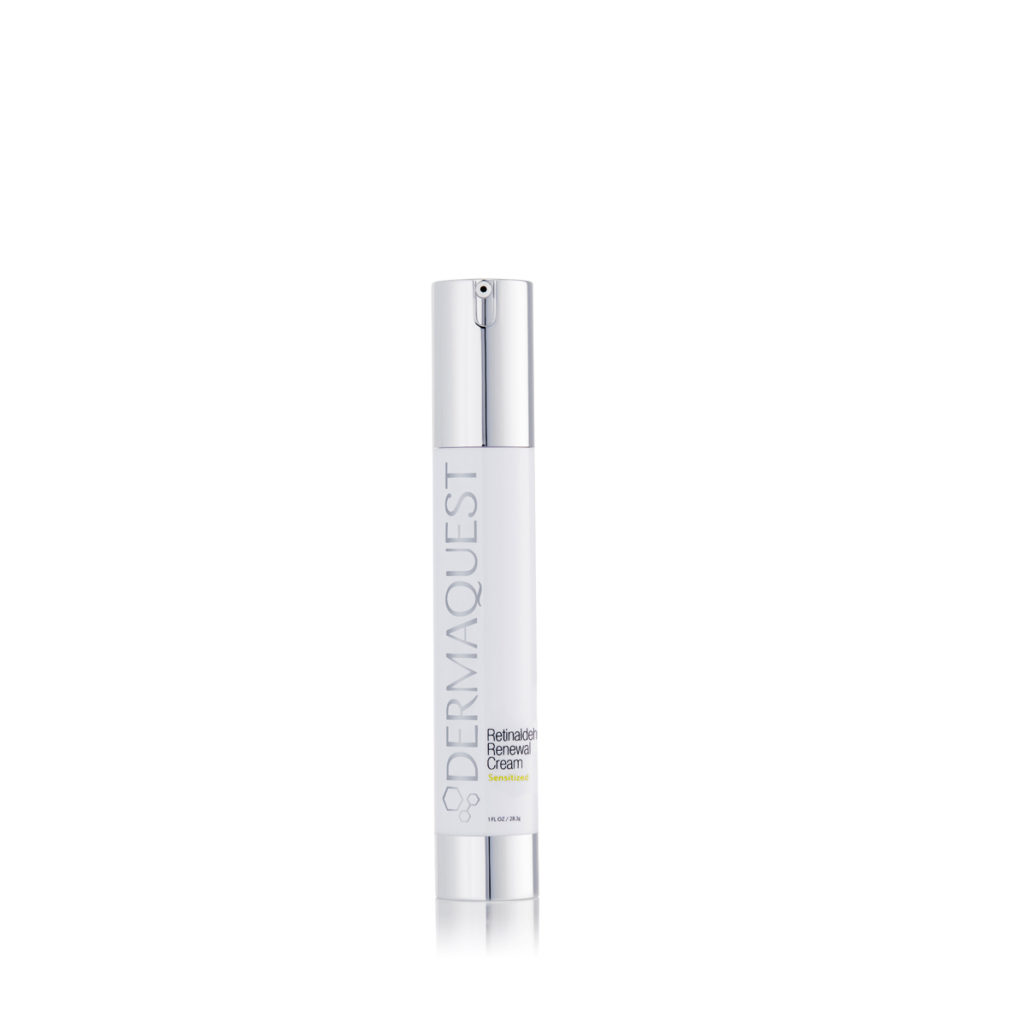
HPA: What is the right SPF?
VM: There are 2 types of SPF. A physical SPF and a chemical SPF.
Physical SPF
It shields the skin and repels the UV rays. It’s great for someone who is pregnant, has Rosacea or has acne prone skin. You don’t want to absorb the heat you want to reflect it. Physical SPF is mineral-based. Look for ingredients such as titanium, titanium dioxide, zinc and zinc dioxide. With physical SPF you can put it on your skin and go outside immediately. When you are outdoors, apply the physical SPF a lot more often because it can wash off from your sweat etc.
Chemical SPF
This SPF has a formulation of chemical compounds which absorbs the UV rays, scatters them and that’s how they protect the skin. The ingredient would include Oxybenzone. Here you should wait 30 minutes before sun exposure. It’s a good base for somebody who uses a bit more makeup as chemical SPF is a bit thinner and spreads more easily. Reapplying this SPF every 90 minutes is a good idea.
Reading the instructions will tell you which is a chemical and which is a physical SPF.
HPA: How much SPF should I use on my face and neck?
VM: You will need a full teaspoon to properly protect your face and neck. SPF is to be used everyday, 365 days a year. It doesn’t matter if you are indoors or outdoors. Even through windows, the UV rays still penetrate the skin. When it’s snowing, those UV rays bounce off of that white snow. So your skin definitely needs protection even though it’s cold out there.
HPA: Now let’s build on the basic essentials that we just talked about by introducing serums. What do they do?
VM: Serums have potent active ingredients they are basically the most active part of your skincare routine whether it’s in the morning or night. They are made with the smallest molecular structure. So it can really penetrate into the deeper levels of the skin.
We need that serum because we want to target any type of concerns so that we can get to the root cause of the problem. As cells turn over and regenerate, everything turns out healthier, stronger and more unified in complexion.
HPA: What should I look for when I’m buying a serum?
VM: One thing to keep in mind is that cheaper doesn’t always mean better, and more expensive doesn’t always mean better either.
In terms of type of serums go from thinnest to the thickest. The thinnest serujms penetrates more deeply into your skin. The thicker ones sits slightly higher on the epidermis.
Vitamin C serum
It helps shield the skin from free radicals. It helps with brightness as well.
Vitamin C is a volatile ingredient, so it needs to be in a carrier so that every single time you apply that Vitamin C serum you are getting the same dosage every time. Vitamin C also oxidizes very quickly. Get it in a bottle that’s airtight. Or you can get Vitamin C capsules which you would pop open and you would get exactly the right dose in the AM and PM and its not oxidized.
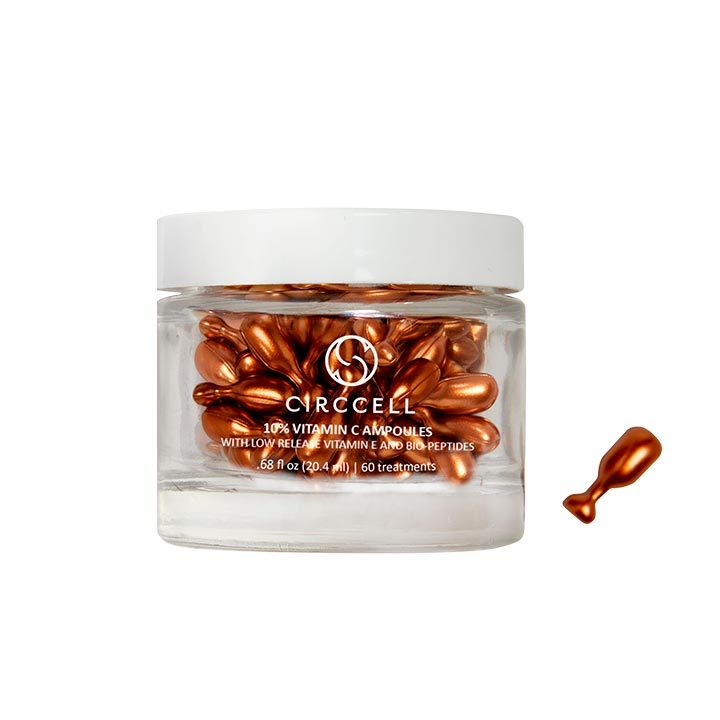
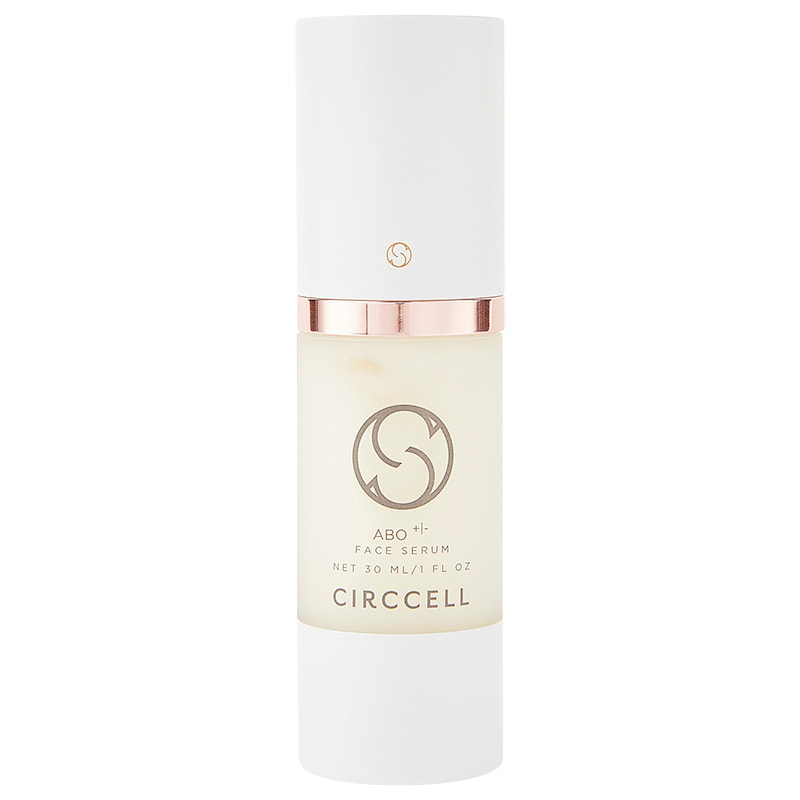
When you are talking about oxidation think of an apple. When you slice it the flesh is nice and bright. When you leave it out there for 10-15 minutes that white flesh starts to turn yellow. That’s the result of oxidation. So, when you keeping opening and closing that bottle of Vitamin C that’s what going to happen. When you use your Vitamin C on the first day and then on Day 30, you will see on Day 30 that the Vitamin C starts to look more amber or a bright orange, or even white.
Vitamin C should be paired with a Vitamin E because Vitamins C & E work together to strengthen the power of the Vitamin E. You’re getting Vitamin E’s barrier repair and anti-inflammatory elements in addition to what Vitamin C does.
HPA: Can we talk about purging and Vitamin A?
VM: When I get my client on Vitamin A, not one single one purged, or got irritation etc.
It’s the form of the Vitamin A. If you have more sensitive skin, or prone to breakouts, your purge will last 3-6 months because your skin is trying to regulate itself, the purging is happening because your skin is telling you “I don’t like this product”. Don’t wait it out. Stop using that product immediately.
HPA: Retinol seems to be everywhere. But it always irritates my skin. Why is that?
VM: Vitamin A as a whole, is a beautiful ingredient. Our cells need Vitamin A because every single day as we get older, our cells don’t produce enough of it. We need it for proper formation of our skin cells. It delivers collagen synthesis and keeps our collage nice and plump.
The challenge with Vitamin A is that there are so many forms of it, which include Retinol which is a differently formulated version of Vitamin A.
Retinol is a more alcohol-based Vitamin A, so the skin reacts to it because of the alcohol. The skin gets more red, flaky and it breakouts. So the introduction of Retinol needs to be gradual.
There are forms of Vitamin A, such as retinaldehyde which is an oil-based Vitamin A, which includes C & E and peptides. When you introduce that Vitamin A cocktail to the skin it’s able to absorb it better with all the benefits of that Vitamin A delivers, without the irritation.
So, yes, you can have Vitamin A benefits without any type of irritation.
HPA: I’m seeing mini beauty refrigerators all over Instagram. What should I refrigerate?
VM: When it comes to applying things to your face the colder the better, because cold decreases the dilation of the skin’s capillaries.
What Goes In The Fridge
Sheet masks
Gel Masks
Any type of serum that’s anti-redness, anti-inflammatory
Moisturizers
Don’t Put These In The Fridge:
Clay masks
Moisturizer with high levels of Vitamin A, as they may not do too well because it’s been stabilized at a certain temperature and if you refrigerate it, it will change its structure.
HPA: What about home made facials from ingredients that you have in your pantry?
VM: There is a reason why scientists and formulators have a job. They are creating products which are able to penetrate the skin in the way that we need them too.
Yogurt. Egg. Honey. Whatever it is, put it in your smoothie. Coconut oils and olive oils are meant to be eaten. These foods don’t have the molecular structure to penetrate the skin.
HPA: Are facial oils worth it?
VM: I love facial oils. Again, I don’t mean olive oil. Facial oils are specially formulated for the skin. They have a way of protecting and shielding the skin from Trans Epidermal Water Loss. These oils help shield the skin by locking in the water. When we lose that water from the skin we notice crepe-like texture and tiny little cracks in the skin. The face oils have a beautiful finish and it does shield and protect the skin.
HPA: Where do facial oils fit into my beauty routine?
Editor’s note: It’s easier to look at how the skin can absorb the product by their molecular structure. The smaller the structure, the deeper it goes into your skin. So it’s always good to start with what goes deepest into your skin and work your way up the layers of the epidermis.
VM: Facial oils have a slightly larger molecular structure than serums. Moisturizers have a slightly larger molecular structure than face oils. So you should add your face oil right after your serum and before your moisturizer.

HPA: Let’s talk about toners, do I really need one?
VM: People often question the necessity of a toner. It’s there to help balance the pH level of the skin. Once the pH level is balanced it can penetrate the active ingredients that follow (i.e. serums, face oils, moisturizers, masks) much better.
This is the order of what goes on your skin:
IN THE AM
Cleanser
Toner
Water-based Serum
Face Oil *depending on the face oil (check the instructions), you may be able to mix your face oil with your moisturizer upon application.
Moisturizer (if you aren’t mixing your oil in your moisturizer)
SPF
IN THE PM:
Cleanser
Toner
Serum
Face Oil *same applies as per above
Moisturizer
HPA: What about exfoliation? I’m always worried I’m doing more harm than good when I use those scrubs/granule-based exfoliator creams.
VM: Those are physical exfoliators and I don’t love physical exfoliators. People’s skin tend to be a bit more irritated right now. There’s this subconscious stress and people are breaking out more because of masks. Don’t exfoliate if you are breaking out because you can open up that breakout and spread that bacteria around. You are also traumatizing your skin.
Chemical Exfoliators
I like chemical exfoliators. You can find them in your toner or essence. It’s a cocktail of glycolic and lactic acid, which have hydrating components to them as well.
You’ll find serums with acids in there as well i.e.: beta hydroxy acid, alpha hydroxy acid. These are great because they get rid of the dead skin cells without creating that trauma. Fruit enzymes are great too i.e.: citrus fruits, (I’m talking about actual formulas not actual fruits).
When it comes to winter exfoliation, I would do it 1 to 2 times a week maximum. The same rules applies even if you are using a specific exfoliator on your skin care routine i.e. an exfoliating scrub.
HPA: What about exfoliating acne prone skin?
VM: If you’re acne and breakout prone you can get these resurfacing pads which I have, and I tell them do it every night. It helps keep the skin smooth and it has alpha hydroxy acid and hydrating properties so it’s exfoliating and hydrating at the same time.
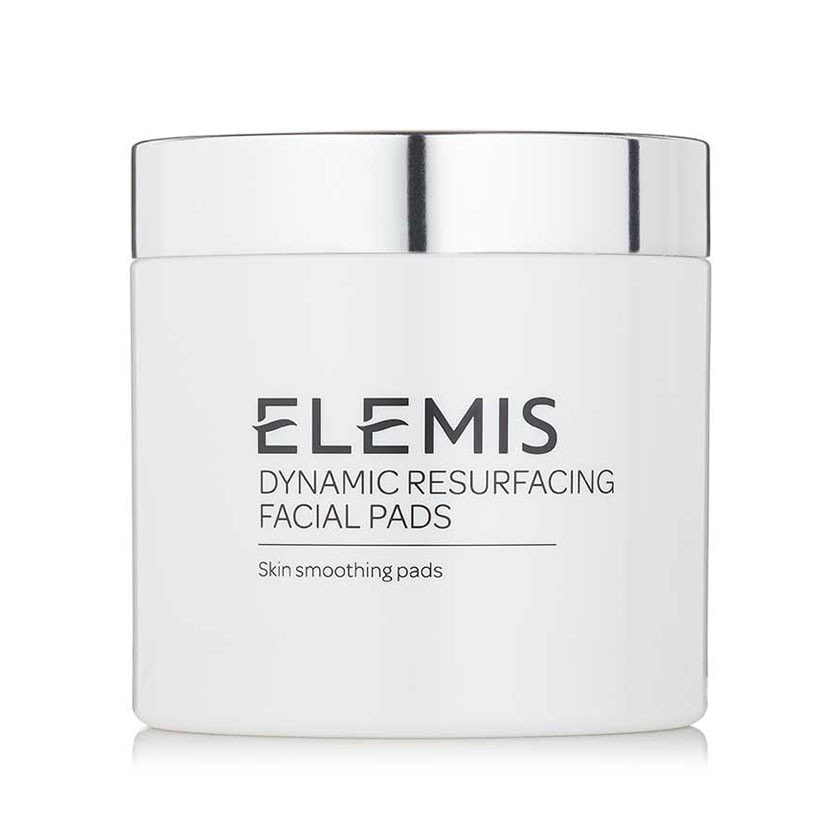
If you’re acne prone, a beta hydroxy acid in a serum is also good. It’s an oil soluble acid and it will attempt to go into the follicle and flush the bacteria out of there. Think of that particular serum as a daily treatment to combat acne breakout and congestion, and it will smooth out your skin’s texture.
HPA: How can I help my skin during the winter?
VM: Most people are pressed for time during the day, so they tend to have more time at night. So I would look at masks such as hydrating masks, sheet masks and creamy masks.
HPA: How can one deal with adult acne?
VM: As you know, I primarily treat acne clients of all ages.
Food: Take a look at the food you are eating. Don’t assume that it’s just gluten and the dairy. It may not be. It’s all about understanding food sensitivities and what the specific food triggers are.
Hormones: You would need to understand your hormone imbalance as that also can lead to adult acne.
Stress: This is massive today. Even pre-COVID, stress was a major factor for outbreaks.
The Pill: Some of my clients will be on the birth control pill to help with their acne. But again, when they get off of it, their acne comes back. So one needs to look at the root cause.
Internal inflammation: Taking a look at your bowel movements. Are they regular ie: at least 1/day daily? Are your periods regular? Are you drinking enough water? How are you sleeping at night?
When I work with my clients about their adult acne, the first thing we start talking about is their lifestyle. Then we progress into products and treatments. When we figure out the lifestyle, then the products and treatments are more optimized.
HPA: In the current scenario, our exposure to outdoor elements has decreased due to the various stages of lockdown and working from home (where we can) etc. So does that mean I can be less stringent with my cleansing routine since I’m not exposed to as much pollutants as I would in a normal situation?
VM: We are in front of the laptop and blue light creates free radical skin damage. There are dust particles. We don’t get a lot of the air circulation happening. We have the heat on. We may have pet(s) in the house.
There’s pollution from our walls because of different types of paints and metals etc. In some cases it can be even more polluted then going out. Our body is still going through all the things it needs to go through, so we have to look after our skin. It’s the largest organ in our body.
You can contact Vee Mistry for a customized virtual consultation at www.skinbyvee.com where you can also take a look at her exclusive line of skincare products.
All products seen in this story can be purchased at www.skinbyvee.com.
SKIN BY VEE’s private studio is located at 18 Dupont Street, Toronto Ontario. Feel free to follow Vee at Instagram.
You can also contact her at: [email protected]
Main Image Photo Credit: www.skinbyvee.com
Hina P. Ansari
Author
Hina P. Ansari is a graduate from The University of Western Ontario (London, Ontario). Since then she has carved a successful career in Canada's national fashion-publishing world as the Entertainment/Photo Editor at FLARE Magazine, Canada's national fashion magazine. She was the first South Asian in...
















